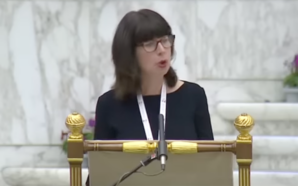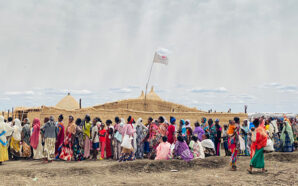When we each consider our moral evolution across a lifespan, we realise how patient God has been with us.
Like the father-figure David Wenham played so gently in the film Paper Planes, who must wait for his son to mature beyond an obsession with competitive success, God waits for us, understanding that an individual can discover the better way slowly, rather than being dragooned into it.
Life itself is a waiting game. “How long, O Lord?” pleaded the psalmist in Psalm 13. St Paul wrote, “We know that the whole creation has been groaning in labour pains until now…” (Romans 8:22).
St Maximilian Kolbe ended his days on Earth waiting.
In his case, he awaited an unjust death.
It was not the only period of his life which required, yes, “the patience of a saint” (Revelation 14:12). He was born in Poland when it was a part of the Russian Empire, and died when it was under occupation by Germany. His father was hanged for resisting Russian control. He himself died partly for resisting Nazism.
In a childhood vision, Mary offered him the white crown of purity or the red crown of martyrdom. Each required the fruit of the Spirit, patience (Galatians 5:22). Kolbe chose both.
As a Conventual Franciscan priest ordained in 1919, Kolbe saw his mission as an endless struggle against the enemies of the Church. He campaigned against Freemasons, who then were involved in active protests against the papacy, and he said some intemperate things about Jews, taking his lead from the Western tradition of hundreds of years of criticism of them. Indeed, when he was put forward for canonisation, such early comments were initially held against him.
He witnessed the rise of the Nazi Party across the border, and when Poland was invaded by Germany in 1939, he was arrested for his opposition to Hitler. Released, he did not let up speaking out against Nazism on radio and in his newspaper, The Knight of the Immaculate, a product of the sub-group he founded, the Militia Immaculata, ‘the Army of Mary’. For this sustained act of defiance, Kolbe was imprisoned, eventually, in Auschwitz – Prisoner 16670.
The occasion of his martyrdom is rightly famous. When an inmate escaped from the concentration camp, the SS guards selected 10 prisoners to be tortured and killed as a lesson to the others. When one of the randomly selected prisoners, Franciszek Gajowniczek, pleaded for mercy so that he might see his wife and children again, Kolbe offered himself in his place.
There is perhaps no more liminal space than a death camp. There is no offered comfort, no token of a hope still to come. The mission is to break people and let them die. When Kolbe made his choice, to sacrifice himself, his struggle was over – but the waiting was not.
In an underground bunker, Kolbe starved to death with the other nine prisoners selected. Another prisoner whose job it was to empty their urine buckets found them dry each time; the doomed ones had drunk from them, desperately.
Each time the bucket-bearer entered, Kolbe was kneeling or standing at the centre, praying. Kolbe had even learned to smile upon his oppressors, the SS guards.
It would be glib to say that Maximilian Kolbe learned the truth about the suffering of the Jews in his final days – for his own monastery had hidden thousands of them long before this final ordeal.
What he had learned was that, as a martyr, one required not the patience of a saint, but the forbearance of God.
Peter Fleming is the author of ‘The Unexpected Light: Reflections from a Year of Mercy’, and ‘Would I Like Jesus?’. Peter is also a secondary teacher in the Diocese of Parramatta.
Reproduced with permission from Australian Catholics, a publication of Jesuit Communications Australia.








